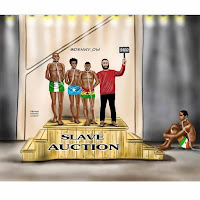Ghana's Independence Day is a momentous occasion celebrated annually on March 6th, commemorating the country's freedom from colonial rule. The day was marked by various events and activities across the country, including parades, flag-raising ceremonies, cultural displays, and speeches.
The Independence Day celebrations in Ghana are usually marked with a grand parade in the capital city, Accra, which is attended by the country's top officials, including the President, Ministers, and members of the diplomatic corps. However, in the last few years, it celebrations have been rotating in other regional capitals. This year the national parade was organized in the Volta Regional capital, Ho. The parade is a showcase of the country's military might and cultural diversity, with marching bands, colorful displays, and traditional dances.
The President of the Republic of Ghana, His Excellency Nana Addo Dankwah Akuffo-Addo welcomed the guest of honour, President of the Republic of Guinea-Bissau and current Chair of the Authority of Heads of State and Government of the Economic Community of West African States (ECOWAS), His Excellency Umaro Sissoco Embaló to the event.
In his speech, the president of Ghana stated that "Sixty-six (66) years down the line, we have worked hard to live up to this responsibility, even though we acknowledge that we have not fully realised our potential and the dreams and aspirations of our forebears, who fought for the independent Ghana we have today. "
Ghanaians across the country, both at home and abroad, also participated in the celebrations by dressing in the national colors of red, gold, and green, attending local events, and sharing messages of hope and unity on social media platforms. The Independence Day celebrations provide an opportunity for Ghanaians to reflect on the country's progress over the years, and to renew their commitment to work towards building a better Ghana.
In addition to the parade, there was a host of other activities to commemorate the anniversary. These include cultural festivals, art exhibitions, concerts, and sporting events.
As Ghana marks its 66th anniversary of independence, it is worth reflecting on the journey the country has taken since gaining freedom from colonial rule. Ghana has come a long way, with significant achievements in areas such as education, healthcare, and infrastructure. However, there is still much work to be done to address the challenges that continue to face the country, including poverty, inequality, and corruption. The Independence Day celebrations provide an opportunity for Ghanaians to renew their commitment to tackling these challenges and building a prosperous, peaceful, and united Ghana.
In conclusion, Ghana's Independence Day on March 06, 2023, was a momentous occasion, as the country celebrated its 66th anniversary of independence. The day did not only bring Ghanaians together, but provided a sense of renewed hope. will be marked by a grand parade, cultural displays, and a host of other activities, providing an opportunity for Ghanaians to come together to celebrate their country's achievements and renew their commitment to building a better Ghana. As the country moves forward, it is important to remember the sacrifices made by the country's founding fathers and to work towards realizing their vision of a united, prosperous, and peaceful Ghana.










